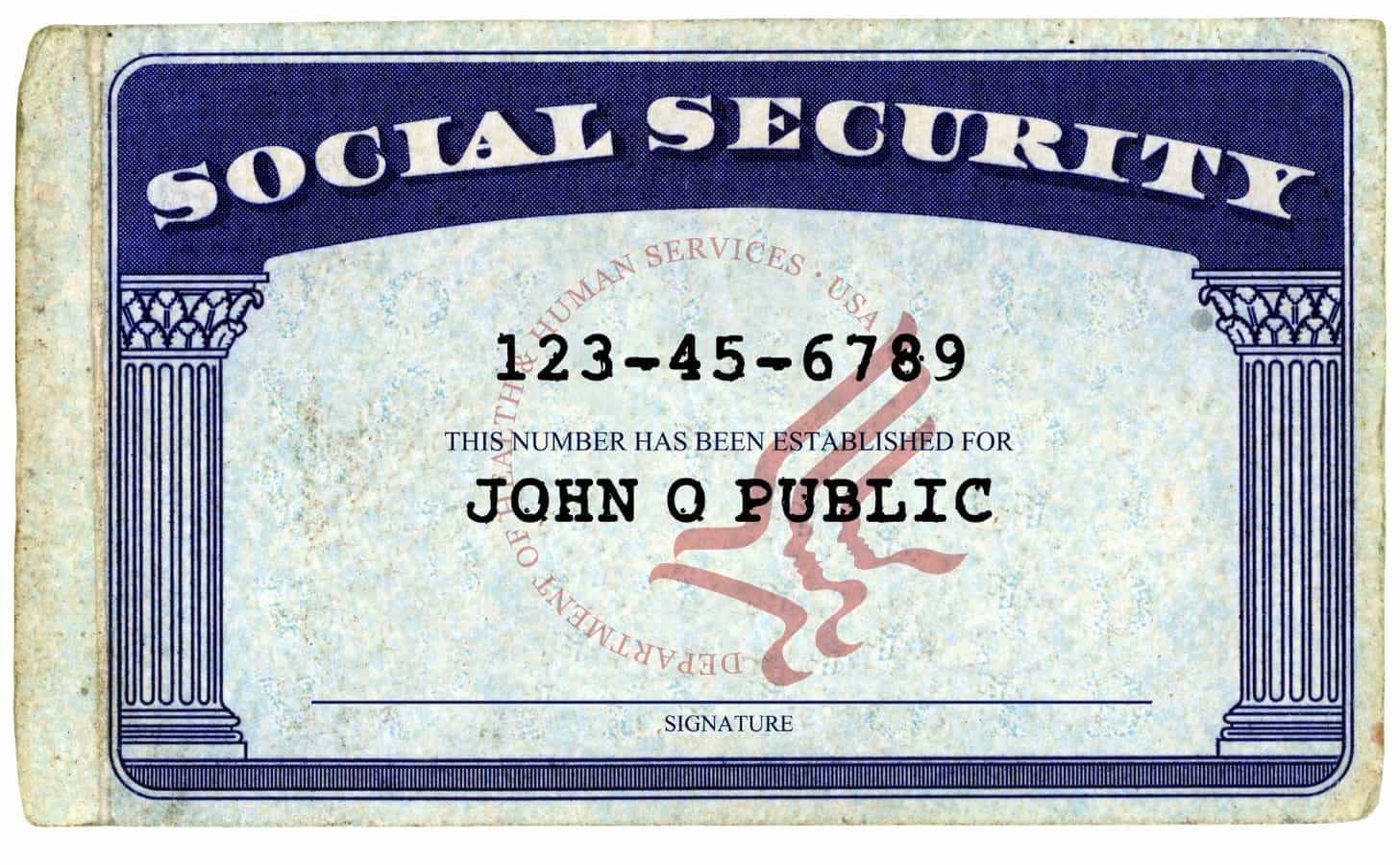New Law Helped Government Workers But Speeds Up Social Security Cuts For Everyone Else – Financial Freedom Countdown
Seniors counting on full Social Security benefits just got troubling news. The program’s trust funds are now projected to run dry by 2034; one year earlier than previously forecast.
According to a new government report, the accelerated timeline is partly due to the added cost of the Social Security Fairness Act, which boosted payouts for millions of retired public workers.
If no action is taken, monthly benefits could be slashed by around 20%.

As per the latest Social Security and Medicare Boards of Trustees report, the Old-Age and Survivors Insurance (OASI) Trust Fund will be able to pay 100 percent of total scheduled benefits until 2033.
The long-term outlook for Social Security’s combined trust funds worsened this year, mainly due to three key factors. First, the Social Security Fairness Act, signed into law on January 5, 2025, repealed the Windfall Elimination Provision and Government Pension Offset, boosting projected benefits for certain government retirees.
This change significantly increased the strain on the Old-Age and Survivors Insurance (OASI) Trust Fund, and was the main reason the overall Social Security depletion date moved up.
Second, the Trustees now expect the U.S. fertility rate to recover more slowly than before, delaying the return to normal levels by a decade; from 2040 to 2050.
Third, the report assumes a smaller share of future economic growth will go to workers’ wages, further reducing projected payroll tax revenue.
Biden Approved the Landmark Social Security Fairness Act

In a dramatic midnight vote on December 21st, 2024, the Senate passed the Social Security Fairness Act, a controversial measure to boost retirement benefits for public sector workers.
On Jan 5th, 2025, President Biden signed into law legislation extending additional benefits to nearly 3 million retirees.
Critics warned that the bill, which repeals provisions reducing payouts for pension recipients, could further destabilize Social Security’s already strained finances.
The bill aimed to repeal two provisions, the Windfall Elimination Provision (WEP) and Government Pension Offset (GPO), which currently reduce Social Security payouts for public sector worker.
While hailed as a victory by many public employees and their unions, the move has sparked intense debate over equity, fiscal sustainability, and the future of Social Security.
Will This Reform Cost Retirees More Than It Helps?

The Social Security Fairness Act, estimated to cost the federal government $190 billion over the next decade, seeks to expand benefits for nearly 3 million retirees who opted into state or local pension plans instead of Social Security.
However, analysts at the bipartisan Committee for a Responsible Federal Budget (CRFB) argue that repealing WEP and GPO provisions will significantly worsen Social Security’s finances. The CRFB predicted the average couple retiring in 2033 could lose $8,000 in benefits during the half-year of early insolvency—and up to $400,000 in lifetime benefits if Social Security funds are depleted altogether.
The debate raises urgent questions about whether reforming these provisions serves justice or jeopardizes the long-term viability of the program.
The Case for Repeal of WEP and GPO

Supporters of the repeal argue that the WEP and GPO unjustly penalize public employees by reducing their Social Security benefits simply because they also receive pensions from jobs not covered by Social Security.
Proponents, including Representative Spanberger and Graves, highlight how these provisions disproportionately affect retirees who worked part-time or in second careers in Social Security-covered employment to supplement their public service incomes.
Senate Majority Leader Chuck Schumer told the rally organized by labor unions and lawmakers. “You’re going to find out which senators are with you, and which are against you. I’ve got all of my Democrats lined up to support it. What’s happening to you is unfair, it’s un-American and I will fight it all the way.”
Supporters emphasized that the repeal is not just about fairness for today’s retirees but also about correcting decades of systemic inequities for spouses, widows, and other survivors.
How Many People Benefit from the Repeal

The Windfall Elimination Provision (WEP) reduces Social Security benefits for individuals who previously worked in positions where they did not contribute to Social Security through payroll taxes but now receive pensions or disability benefits from those employers.
Approximately 2.1 million people — or about 3% of all Social Security beneficiaries — were impacted by the WEP, according to the Congressional Research Service.
The Government Pension Offset (GPO) decreases Social Security benefits for spouses, widows, and widowers who also collect pension payments.
As of December 2023, the GPO affected around 745,679 people — about 1% of all Social Security beneficiaries — according to the Congressional Research Service.
Will All Teachers, Firefighters, Police Officers, and Public Workers See a Benefit Increase Under the New Law?

Not necessarily. While some reports have suggested that all public employees will benefit, only those receiving a pension from work not covered by Social Security may see an increase.
The majority; about 72% of state and local public employees already pay Social Security taxes and are not impacted by the Windfall Elimination Provision (WEP) or Government Pension Offset (GPO).
As a result, they will not see any additional benefits from the new law.
Critics Warn of Fiscal and Equity Concerns

Despite the momentum, not everyone is celebrating. Critics, including social policy analysts warn that outright repeal of the WEP and GPO could have significant consequences for the Social Security system and its beneficiaries.
Opponents argues that these provisions exist to ensure fairness between workers who pay Social Security taxes throughout their careers and those who work in non-covered employment.
Without the WEP and GPO, public employees with government pensions could receive disproportionately generous benefits compared to their Social Security-covered counterparts.
For instance, a public worker receiving a substantial pension from non-covered employment could appear as a low earner in the Social Security system and qualify for higher benefits than their actual income justifies.

Critics had warned that repealing these provisions would accelerate Social Security’s financial troubles, advancing the trust fund’s depletion date from 2035 to 2034 and adding $150 billion to its costs over the next decade.
As per the latest Trustees’ report, Social Security is projected to be insolvent in the coming decade.
Increased Criticism of the Bill

Congressman Chip Roy (Texas) in a post on X said, “This bill is absurd – and bankrupts Social Security 6 months earlier.”
Kurt Couchman, a former House staffer posted, “Senators just voted 73-27 to take up a bill to spend an extra $200 billion from the Social Security trust fund, forcing it to run out half a year sooner, which will impose even steeper cuts on all beneficiaries. Why? To give windfalls to retired government employees.”
The Wall Street Journal Editorial Board mentions, “What’s unfair is rewarding high-paid government workers with larger Social Security benefits than they earned. That’s essentially what the bill would do.
Social Security payments are based on worker contributions and average monthly earnings over the highest 35 years of compensation. They are also progressively indexed so higher-paid workers receive a benefit that replaces a smaller share of their earnings. Ergo, an investment banker receives a smaller wage replacement rate than a retail clerk.
But what about teachers and firefighters? Many state and local government employees who receive pensions don’t pay into Social Security. Instead they earn pensions that are far more generous than the average Social Security benefit. Many can also retire as early as 50 and then work in private industry while receiving their government pension.
Here’s the rub: Government workers who spend some of their career in private industry are entitled to Social Security benefits. However, the standard Social Security formula treats years employed in government as if workers have zero earnings. This reduces their average earnings in the equation and thus increases their wage replacement rate.
As a result of this formula quirk, government workers who spend some years with private employers would get a relatively larger benefit than similar-earning workers who spend their entire careers in private industry. Congress in 1983 sought to fix this injustice with the Windfall Elimination Provision (WEP), which reduced benefits for such government workers.
Government unions have long pushed to repeal this provision as well as a 1977 law that ensures government workers don’t receive outsize spousal benefits under the Social Security formula.”

The Social Security Fairness Act would add an estimated $196 billion to deficits over the next decade, the non-partisan Congressional Budget Office has estimated.
The increasing deficit is causing concerns to most Americans.
President Trump has the difficult task of getting the deficit under control.
Compared to the national deficit of $67 billion for the same period last year (Oct 2023), our national deficit has increased by $191 billion.
The federal government has spent $257 billion more than it has collected in fiscal year (FY) 2025, resulting in a massive national deficit.
Alternatives to Repeal

Opponents of repeal advocated for reforms rather than abolition. Alternative proposals suggested a “proportional formula” that adjusts benefits based on a worker’s total covered and non-covered earnings. This approach could better align benefits with actual income levels while avoiding the financial strain of full repeal.
Few organizations have supported similar proportional approaches, emphasizing fairness and fiscal responsibility. Such reforms would leverage data now available to the Social Security Administration to calculate benefits more accurately.
Questions Raised on the Timing of the Bill

Some experts questioned the timing of the bill while the solvency of the Social Security system had not been addressed. Although this bill will provide public sector employees and union members additional retirement benefits, no bill has been proposed to shore up the balance of the Social Security Fund which is expected to be insolvent in the coming decade.
Analysts warned that failure to act could worsen Social Security’s looming insolvency crisis.
Retirees are already facing a 21% benefit cut in 2033. Passage of the bill was expected to accelerate a larger cut even sooner.
The CRFB calculated the passage of the bill will result in an additional $25,000 of lifetime benefit cuts for a typical couple retiring in 2033.
How Much Could a Person’s Monthly Benefit Increase?

The increase in monthly Social Security benefits can vary significantly.
Factors such as the type of benefit received and the amount of a person’s pension will determine the final amount.
While some individuals may see only a small increase, others could receive over $1,000 more per month.

For individuals already receiving benefits affected by WEP or GPO, December 2023 was the last month these reductions applied.
As a result, the new rules eliminate WEP and GPO for benefits payable starting in January 2024.
Medicare Also Running Out of Funds

Seniors can’t catch a break.
The report also states that the long-term finances of Medicare’s Hospital Insurance (HI) Trust Fund worsened this year, with its projected depletion date moving closer; yet another blow to retirees already bracing for Social Security cuts.
The shift is mainly due to higher-than-expected spending in 2024, which set a new baseline for future costs.
On top of that, the Trustees increased their assumptions for the growth of inpatient and hospice services, further straining the system.
While some changes in economic and demographic assumptions helped soften the blow in the long term, the overall picture remains bleak.
Meanwhile, the outlook for Medicare’s Supplementary Medical Insurance (SMI) Trust Fund is mixed. For Part B, long-range spending is now expected to consume a larger share of the economy, driven by rising costs for outpatient care and physician-administered drugs.
Part D offers a small silver lining: projected costs are slightly lower than last year, largely because fewer people; especially low-income seniors are enrolling in the program than expected.

The debate over the WEP and GPO highlights broader questions about Social Security’s solvency, equity, and the balance between honoring contributions and maintaining financial sustainability.
For public-sector employees, the law represents additional benefits complementing their pensions.
For policymakers and analysts, it underscores the complexity of ensuring fairness within a system strained by demographic and economic pressures.
As the benefits increase for some public and union workers. the broader implications for Social Security hangs in the balance.
The negative outcomes of this bill are already visible in the earlier depletion of Social Security funds based on the Trustees report and will impact policy for decades to come.
Like Financial Freedom Countdown content? Be sure to follow us!
Treasury I Bond Rates Increases from 3.11% to 3.98% – But with a 1.1% Fixed Rate Locked for 30 Years, Is It Still a Smart Investment?

Inflation has become a significant concern. During the past three years of surging inflation, I bonds offered a safe and attractive investment option. However, with recent lower CPI numbers, the current composite rate for I bonds bought after May 1, 2025 will be 3.98%. The rate has slightly increased from the prior 3.11% but is a sharp decline from the enticing 9.62% annual rate available in May 2022 or even the 4.28% available for bonds purchased before October 31st, 2024. As rates decrease, investors are now considering whether it’s still worth buying Series I bonds.
Discover 15 Smart Investments That Provide Monthly Passive Income

Are you dreaming of a steady passive income every month from your investments? It’s not just a fantasy for the wealthy—it’s attainable for anyone ready to explore their options. Whether you’re just starting out or seeking to diversify, learn how to establish a reliable monthly income stream from familiar choices to hidden opportunities.
Discover 15 Smart Investments That Provide Monthly Passive Income

Millions of retirees counting on Social Security to keep up with rising costs may face yet another financial squeeze in 2026. The Senior Citizens League (TSCL) has forecasted a mere 2.3% cost-of-living adjustment (COLA) for next year—falling short of inflation and marking a continued trend of inadequate benefit increases. This prediction lags behind the 3.0% yearly rise in the Consumer Price Index for Urban Wage Earners and Clerical Workers (CPI-W). If accurate, this would mean yet another year where Social Security adjustments fail to keep pace with real-world expenses, leaving many retirees struggling to cover essentials like housing, healthcare, and groceries.
Seniors Brace for Another Social Security Letdown as 2026 COLA Prediction Signals Trouble Ahead

While many envision tax-friendly golden years, residents in nine states face a harsh reality as their Social Security benefits are taxed. In contrast, three states ended their practice of taxing these benefits for the 2024 calendar year. This shift highlights the complexities of retirement planning in the U.S. and underscores the importance of staying informed about changing tax laws. Are you living in one of these states? Discover how these tax changes might impact your retirement strategy and whether it’s time to reconsider your locale for those serene post-work years.
Retirees in These 9 States Still Face Social Security Taxes—While 3 Finally Got Relief For 2024

Did you find this article helpful? We’d love to hear your thoughts! Leave a comment with the box on the left-hand side of the screen and share your thoughts.
Also, do you want to stay up-to-date on our latest content?
1. Follow us by clicking the [+ Follow] button above,
2. Give the article a Thumbs Up on the top-left side of the screen.
3. And lastly, if you think this information would benefit your friends and family, don’t hesitate to share it with them!

John Dealbreuin came from a third world country to the US with only $1,000 not knowing anyone; guided by an immigrant dream. In 12 years, he achieved his retirement number.
He started Financial Freedom Countdown to help everyone think differently about their financial challenges and live their best lives. John resides in the San Francisco Bay Area enjoying nature trails and weight training.
Here are his recommended tools
Personal Capital: This is a free tool John uses to track his net worth on a regular basis and as a retirement planner. It also alerts him wrt hidden fees and has a budget tracker included.
Platforms like Yieldstreet provide investment options in art, legal, real estate, structured notes, venture capital, etc. They also have fixed-income portfolios spread across multiple asset classes with a single investment with low minimums of $10,000.